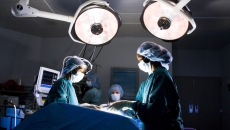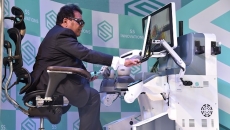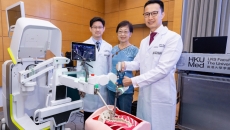Medical Devices
SPONSORED
The opportunities for digital transformation that are emerging from the convergence of acute clinical practice and data integration can drive patient care to new heights of excellence.
Also, Telstra Health has soft-launched remote maternity solutions on its GP network.
In 2023, 35% of third-party breaches affected healthcare organizations with application security presenting the broadest attack surface, according to a new cybersecurity analysis of the largest healthcare companies.
Interestingly, young physicians see more risk to it than their senior counterparts.
The surgical robotic system has also been introduced in Nepal for the first time.
Also, Japan has put up an online directory of health facilities offering childbirth services across the country.
The latest report from the Productivity Commission notes the "slow" uptake of remote care technologies despite wide availability.
New partnerships with Mayo Clinic and Memorial Hermann Health Systems will bring Zipline's autonomous home-delivery service to Houston, Jacksonville and Rochester, Minnesota.
Cyberattackers have been shifting to strategies where legitimate tools commonly installed on desktops and servers are abused for malicious purposes. To fight back, knowledge is power.
Despite the highest agency user fees on record, and granted new authorities to reform and accelerate medical device and biologics approvals, representatives questioned delays in getting products to patients faster.








